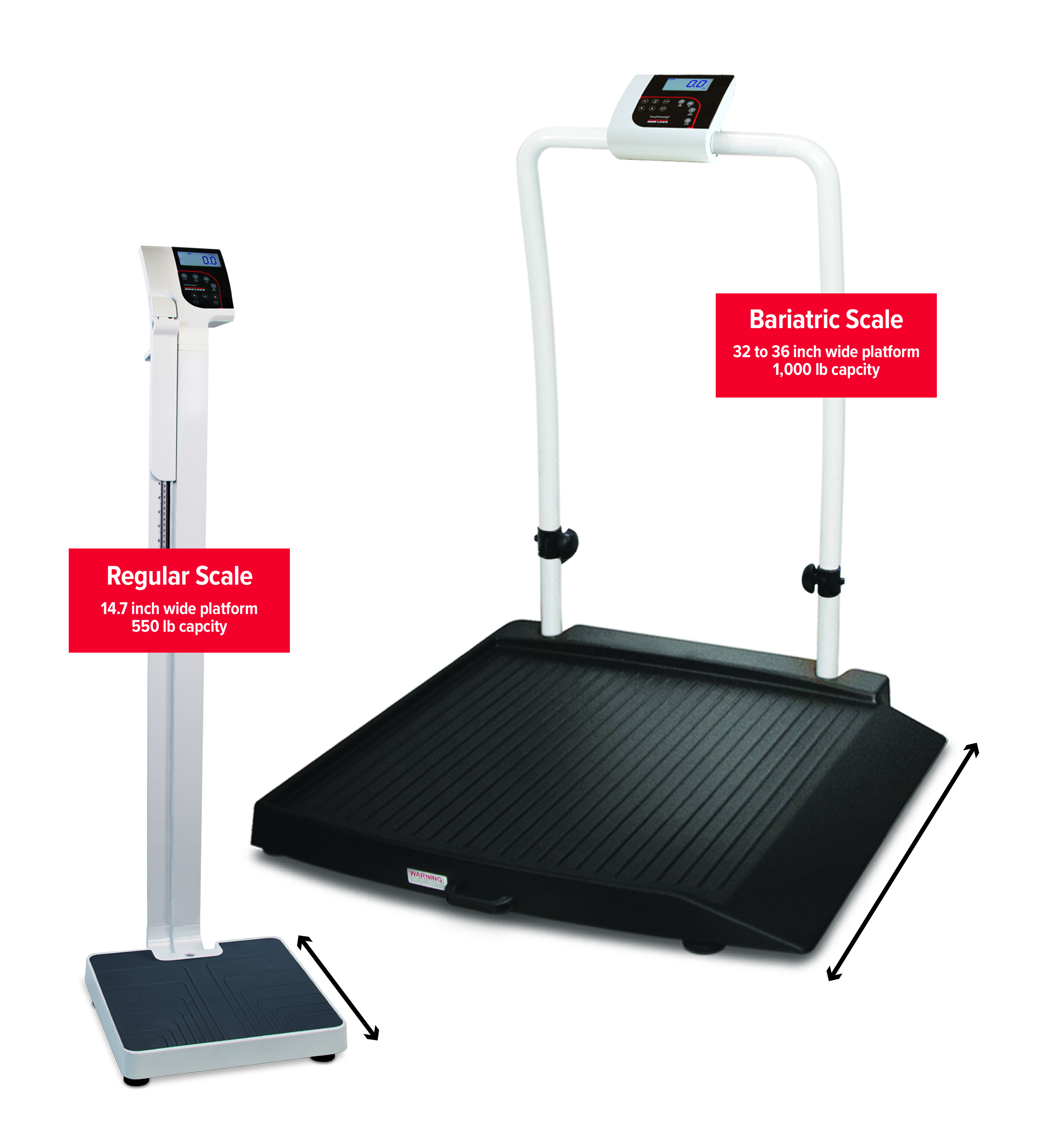Is the website displaying in the correct language? Please confirm or select a different language.
Your region has been set automatically. Please confirm or select a different region.
What is a Bariatric Scale?
The bariatric branch of medicine focuses on patients diagnosed with obesity. Bariatric scales are specifically designed to suit these patients.
What’s the Difference Between Bariatric Scales and Regular Scales?
The difference between bariatric and standard health scales is platform size and capacity. A regular physician scale may have a platform size of only 14.7 inches. Comparatively, bariatric scales may range from 32 to 36 inches, providing a much larger space for weighing.
When it comes to capacity, standard health scales typically handle 550 pounds. Bariatric scales can manage nearly double, with capacities of up to 1,000 pounds. Bariatric scales are a safe and accurate solution for larger weighing needs in healthcare environments.
By using more substantial materials and designing wider platforms, these scales are able to handle larger capacities. Scales may also include handrails or seats to make weighing more comfortable for patients. Similar to other health scales, bariatric scales can be customized to facility and patient needs.
What is a Bariatric Wheelchair?
Many healthcare facilities also have wheelchair scales for patients who cannot safely stand or move. Bariatric wheelchair scales work the same way but can hold larger capacities, providing a safe solution for weighing bariatric patients.
Rice Lake Weighing Systems Bariatric Scales
Rice Lake offers bariatric scales built for optimal patient support. Rice Lake’s bariatric scales are a great solution for bariatric facilities, designed with 1000-pound capacities. With handrail and chair options, these scales make it easier for healthcare workers to capture patient weight safely and accurately.




 My Account
My Account